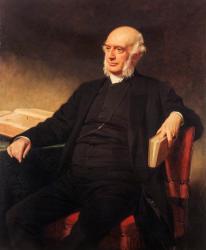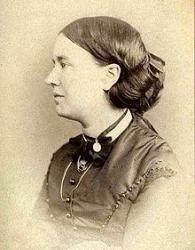
1808 - 1884 Person Name: William Alexander Author of "Vision From The Apocalypse" in The Cyber Hymnal Alexander, William Lindsay , DD. LL.D., of Pinkieburn, Musselburgh, son of William Alexander, Esq., Leith, born in the vicinity of Leith, August 24, 1808. After studying at the Universities of Edinburgh and St. Andrew's, he became, in 1828, Classical Tutor in what is now The Lancashire College. After studying for some time at Halle, he, in 1835, became minister of North College St. Congregational Church, Edinburgh, removing with his congregation in 1861 to a new church in George IV. Bridge, called the Augustine Church, and retired from the pastoral charge of the same in 1877. He died at Pinkieburn, Dec. 20, 1884. He was, from 1854 to 1881, Professor in the Scottish Congregational Hall. In 1846 he received the degree of D.D. from the University of St. Andrew's, and in 1884 that of LL.D., from Edinburgh. He became a member of the O. T. Revision Company in 1870. He wrote and edited many valuable theological works. His Selection of Hymns known as the Augustine Hymn Book, in which his original hymns and translations appeared, was first published in 1849.
--John Julian, Dictionary of Hymnology (1907)
===========================
Alexander, W. L., p. 39, ii. As Dr. Alexander's hymns are all signed in his Augustine Hymn Book, they are not enumerated here. Died Dec. 20, 1884.
--John Julian, Dictionary of Hymnology, Appendix, Part II (1907)
William Lindsay Alexander



